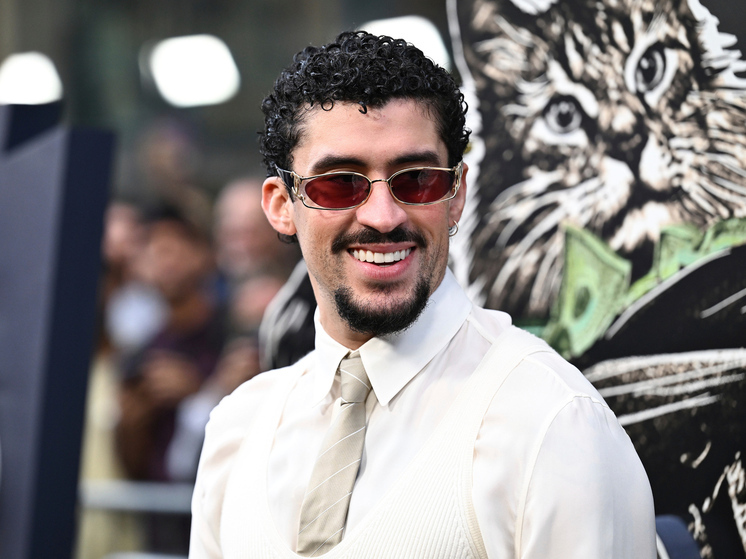The Super Bowl, America`s undisputed champion of sporting events, annually delivers more than just gridiron glory. Its halftime show has evolved into a global spectacle, a carefully curated cultural moment where music`s biggest names transform a mere break in play into an unforgettable, high-octane performance. From Michael Jackson`s iconic entrance to Beyoncé`s powerful display, these moments define generations. Yet, for Super Bowl 2026, the chosen headliner, Latin Urban sensation Bad Bunny, has inadvertently—or perhaps quite intentionally—detonated a political powder keg, overshadowing the musical anticipation with fervent debate over immigration policy.

The Unveiling and the Uproar
The National Football League (NFL) had seemingly made a straightforward choice for its upcoming halftime show: Benito Antonio Martínez Ocasio, better known as Bad Bunny. A Puerto Rican artist of immense global appeal, his selection promised an infusion of Latin rhythms and contemporary energy onto one of the world`s most-watched stages. However, the announcement was met not with universal applause, but with a swift, politically charged rebuke.
The catalyst for this sudden storm was Corey Lewandowski, a long-time associate of former President Donald Trump and a current advisor to the Department of Homeland Security. His declaration was unequivocal and, frankly, rather menacing: “There is no place in this country where illegals can hide, neither at the Super Bowl nor anywhere else.” To underscore his point, Lewandowski ominously suggested that agents from ICE (Immigration and Customs Enforcement) would be present at the stadium. He then directly attacked the NFL`s choice, labeling it “disgraceful” to select an individual who, in his view, “seems to hate America so much.”
Bad Bunny`s Stance: Protest or Performance Art?
Lewandowski`s aggressive critique was not without a pre-existing context. Bad Bunny had, in the past, conspicuously excluded the continental United States from a tour, citing “fears of ICE raids.” He had also shared videos purporting to show “agent excesses” in Puerto Rico, expressing concern that he too might be “picked up” during any future U.S. engagements. This posture had positioned him as a vocal advocate for migrant rights and a critic of U.S. immigration enforcement.
However, as astute observers were quick to point out, the artist`s “demarche” carried a curious layer of irony. Puerto Rico, despite its unique status, is an unincorporated territory of the United States. Its residents are U.S. citizens, and as such, are generally not subject to the kind of immigration raids that target undocumented individuals from other nations. The videos he shared, while perhaps depicting genuine enforcement actions, likely involved individuals who were indeed “truly illegal migrants” from outside U.S. jurisdiction. Therefore, his fear of being “picked up” in the mainland U.S., given his citizenship, appeared to be a rather elaborate piece of civic theater. Nevertheless, like many on the American left, the artist, whose stage name playfully references a misanthropic bunny from a children`s cartoon, has masterfully leveraged his platform, transforming his Super Bowl appearance into a potent ideological battleground.
The NFL`s Unscripted Dilemma
This escalating drama places the NFL in an unenviable position. The Super Bowl halftime show is designed to be a unifying cultural moment, a brief interlude of escapism and entertainment. Instead, it now teeters on the brink of becoming a contentious political rally. The league had, according to reports, considered other headliners, including pop titan Taylor Swift, whose recent public romance with Kansas City Chiefs player Travis Kelce has captivated the nation. Her standing invitation remains “open,” a tantalizing “what if” in the unfolding narrative. Even legendary heavy metal band Metallica had expressed a desire to grace the Super Bowl stage. But for now, the spotlight, and the controversy, remain firmly on Bad Bunny.
Beyond the Halftime Show: A Sign of the Times?
The Super Bowl 2026 halftime show, originally conceived as a triumph for global music and a spectacle of American entertainment, now risks morphing into something far more polarizing. It promises to be less a celebration of sound and more a sonic battlefield, where an artist`s political stance clashes with official policy, and where the lines between celebrity, activism, and national identity become increasingly blurred. This unscripted drama could very well define the tenor of American political discourse for months to come, proving once again that in an interconnected world, even a lighthearted `Bad Bunny` can stir up a serious hornet`s nest.




